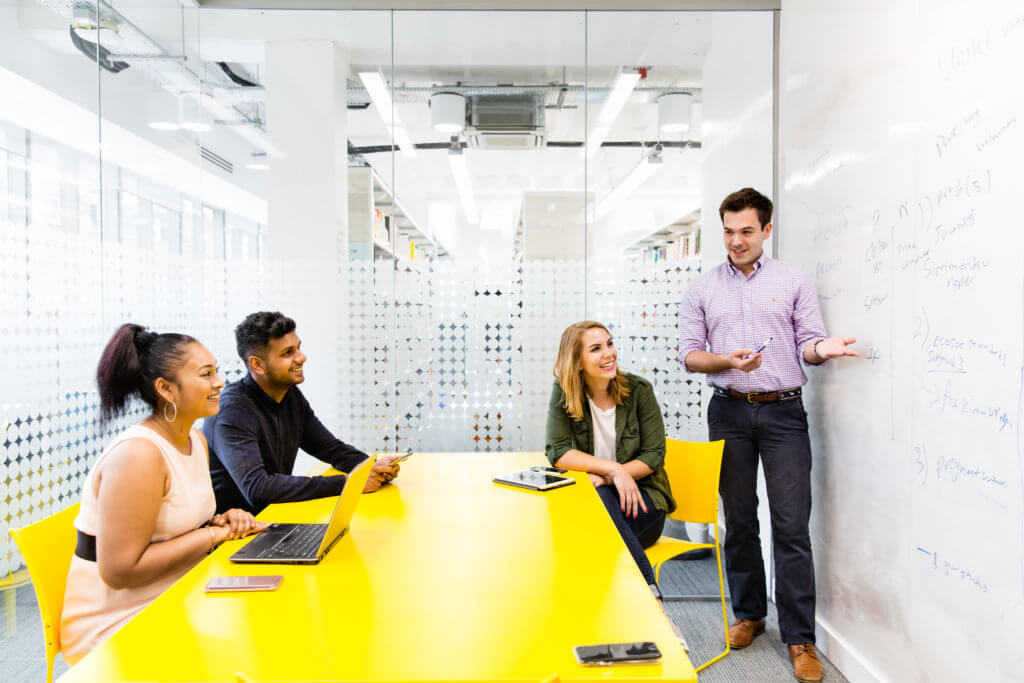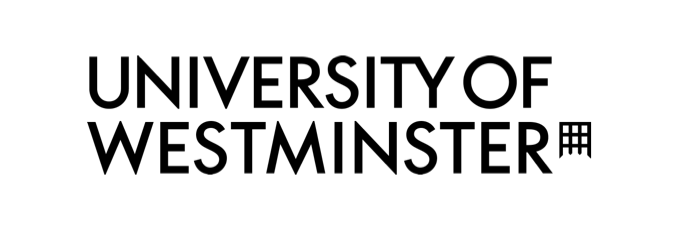From automation replacing or enhancing physically repetitive tasks by up to 55 percent to telecommuting creating more engaged employees, the tech boom has been great for business in recent decades. Today, the data explosion and disruption by AI continue. Our Google Assistants and Alexas are getting smarter by the day. Autonomous vehicles, augmented reality, machine learning, and the Internet of Things are all increasing rapidly in capability. According to the International Data Corporation (IDC), worldwide revenues for Big Data and Business Analytics solutions, at US$166 billion in 2018, are forecasted to reach US$260 billion in 2022.
Another tech revolution is underway and the University of Westminster has the MBA to prepare you for it. Designed for ambitious business professionals and graduates from any discipline, this MBA is practical, cross-disciplinary, and advanced. It combines academic rigour, stimulating teaching approaches and hands-on leadership experiences, including a three-month internship.
These will be key to success in a post-COVID-19, post-Trump world. According to MBA Director, Dr. Paul Langley, automation, remote working and the shortening of supply chains are the top three trends that will emerge. “AI and machine learning will prove pivotal in automation, with Big Data and cloud computing necessary to feed the flywheel of reinforcement algorithms”. A keen know-how on cybersecurity systems and other Industry 4.0 technologies will also prove valuable as firms reconfigure supply chains, set up operations, remove bottlenecks and deliver new products with deep customer preference data.
The Westminster MBA uncovers these complexities. Students are taught the necessary skills, ethics and creativity required to synthesise these technologies in order to deliver on a firm’s strategic vision, choices and actions.
When asked how the Westminster MBA trains students to use technology to help businesses deal with or capitalise on the top trends to emerge in a post-COVID-19, post-Trump world, MBA student Edoardo Lavarini says, “By synthesising both practitioner and academic insights, Westminster MBA students are able to leverage these technologies creatively across a diverse range of verticals to help businesses transform and achieve their objectives in a digital age.”
The programme incorporates emerging technologies like AR/VR, artificial intelligence, blockchain, big data and other disruptive innovations into the curriculum through its dual teaching approach. The first looks into the structure of teams, work processes and necessary frameworks for prioritising work and delivering digital “minimum viable products” (MVPs). The second analyses the technologies themselves and the ways they can be used cross-functionally in organisations to deliver new opportunities for value creation, delivery and capture.
“The two examples can be split looking at the dual approach of the teaching,” shares Lavarini. “We created our very own MVP where we designed, engineered and deployed a prototype app and website for a charity to help them deliver their services digitally during the COVID-19 pandemic. This enabled the charity to create new value for stakeholders and capture new streams of revenue. By implementing agile techniques here, we were able to look across the product scope and see where such technologies would be best suited to deliver the best results.”
The second approach employs case studies to look at the ways in which AI/ML can be implemented across the value chain. “Looking at technology-driven solutions, we took the case study of Ocado. We looked at the ways AI/ML, Big Data, robotics and cloud computing have been used to deliver a radically new business and operational model. Such a case study enabled us to look at new ways of designing business models, away from traditional operational constraints of scope, scale and learning,” explains Lavarini.
The harsh realities of today’s pandemic may have temporarily derailed pledges to fight the climate crisis. Sustainability leaders, however, say now is the right time for corporations to double down on reducing emissions, waste and unethical practices. Technology can help us reach these goals, according to Langley. There are “well-documented” industry examples, such as public electric transport, electric trucks, cheap energy storage, plastic recycling, LED light efficiency, and so on. Sustainability-focused modules such as “Strategic Innovation in a Digital World” and “Sustainable Global Growth” are incorporated into the MBA programme to provide students with the knowledge and tools to become purpose-driven business leaders. “There are a number of internship opportunities with start-ups, SMEs and larger corporations to work on sustainable innovation or digital issues,” adds Langley.

Source: University of Westminster
A business degree in London
MBA students build the confidence and skills needed to tackle bigger challenges, inspire and engage other people, cope with uncertainty and change the way business is done. At Westminster Business School, MBA students get to do this and more in the country’s political, media and financial services capital.
The Westminster Business School is one of the largest, most experienced providers of business management education in London. The school enjoys excellent industry links, providing consultancy and applied research to the public, private and third sectors throughout the world. A broad range of undergraduate, postgraduate, executive and short courses, many accredited by international professional bodies, prepare 6,500 students to be responsible global leaders.
Outstanding facilities include a state-of-the-art boardroom Lab, Bloomberg-powered Financial Markets Suite, Fabrication Laboratory and Digital Marketing Lab. Subjects covered include: digital and international business; management; human resource management; marketing; accounting and finance; economics; entrepreneurship; project management; construction, surveying and real estate; transport and logistics.
Follow the University of Westminster on Facebook, Twitter, Instagram, LinkedIn, YouTube













